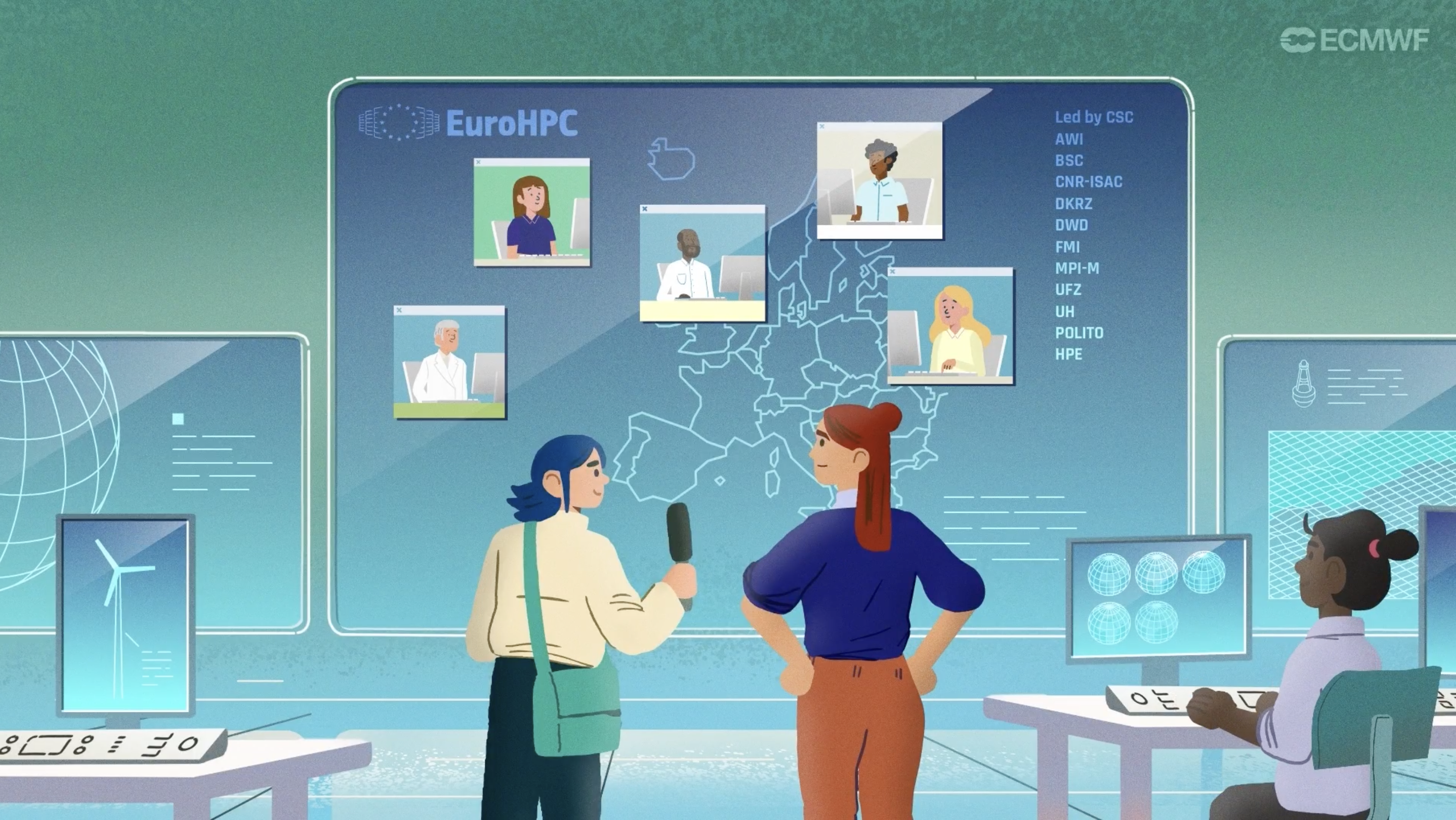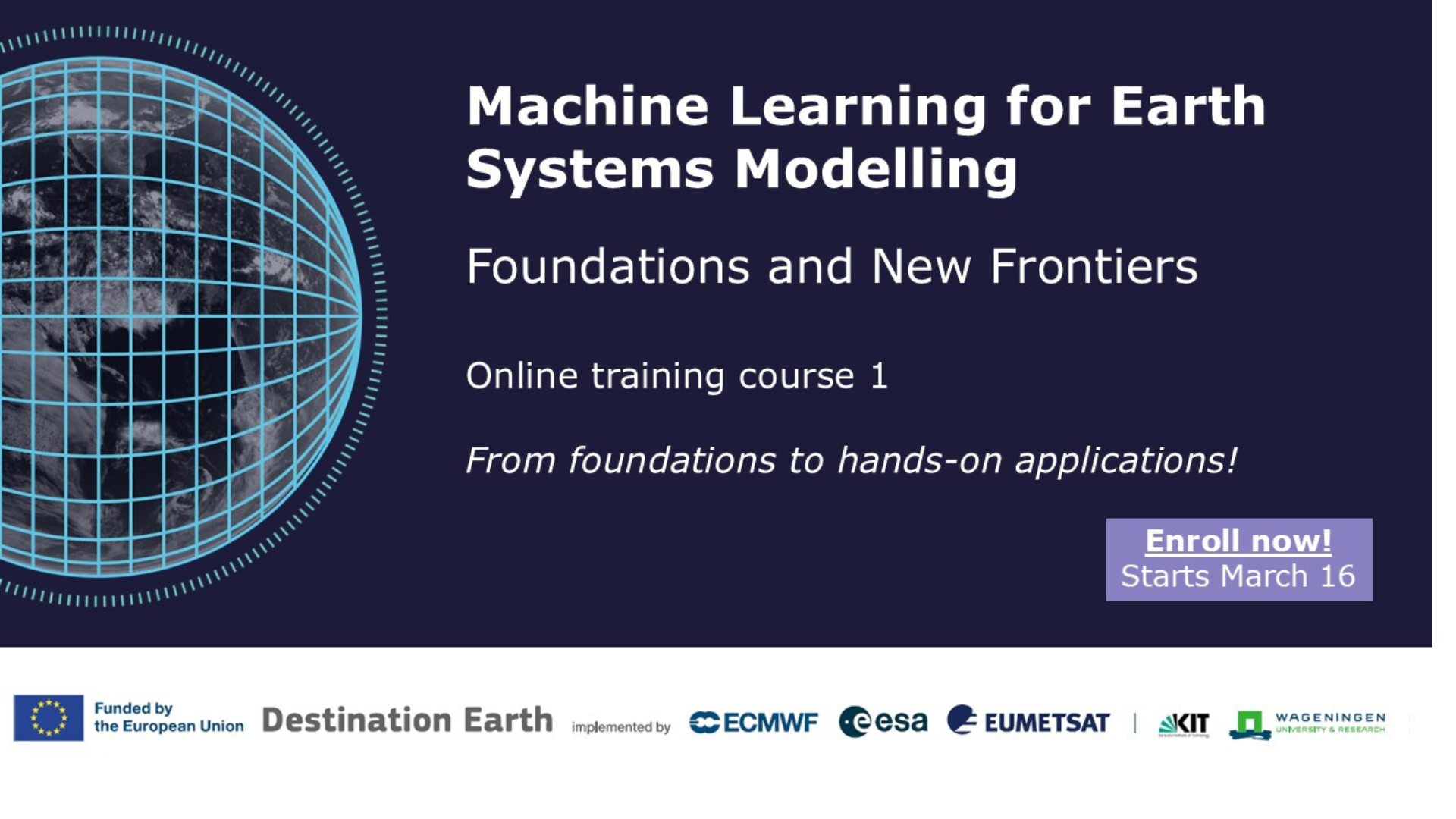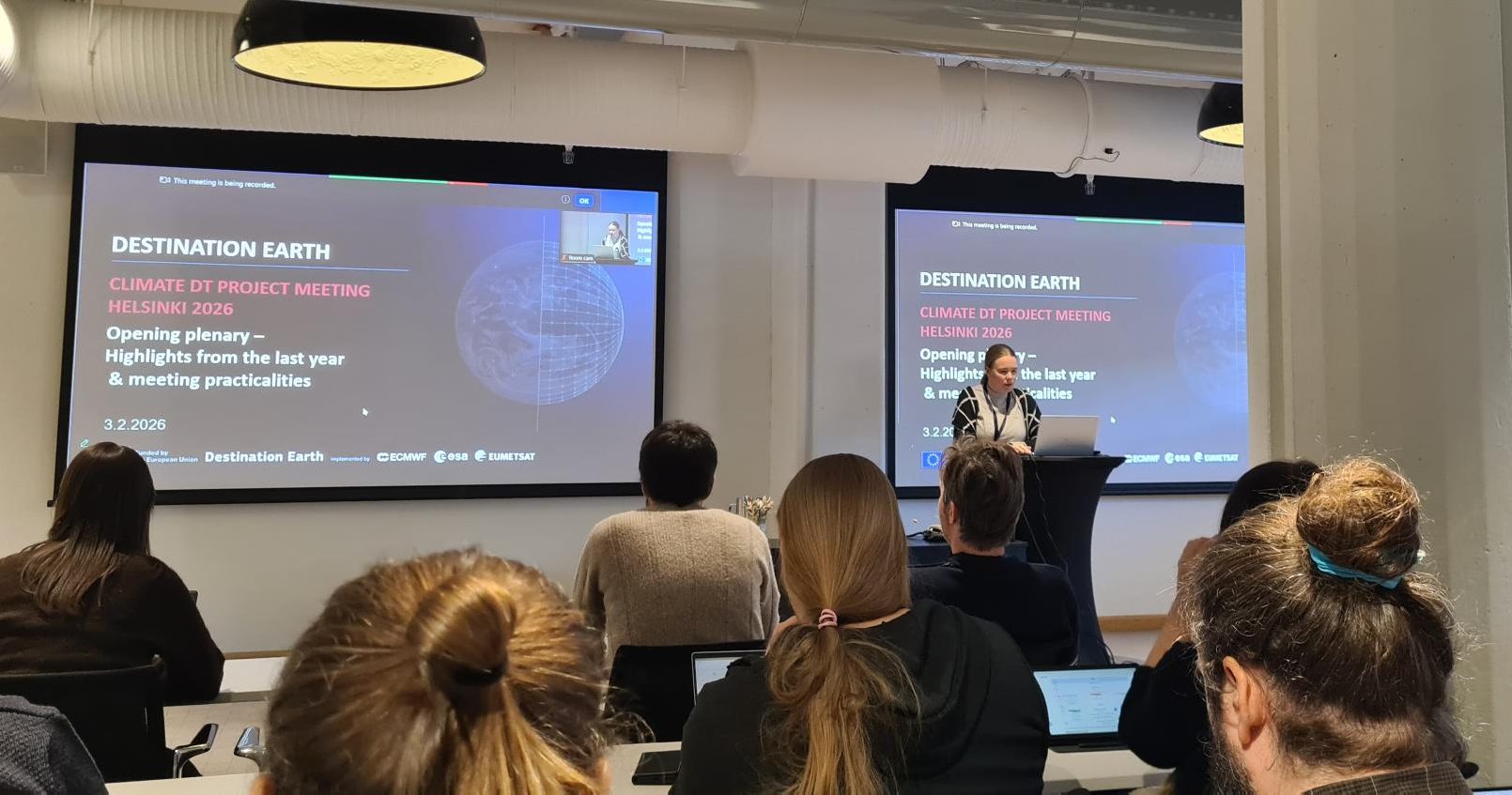
Head of the Earth System Modelling Peter Dueben and Senior Computational Scientist Ioan Hadade will be present in Atlanta, USA for the SC24, the largest meeting in the world for everything around high-performance computing (HPC). Dueben and Hadade will describe the work of ECMWF with AI forecasts and data streaming, and other key aspects the work of the Centre regarding the Destination Earth initiative (DestinE) and the infrastructure of the Weather-induced Extremes and Climate Change Adaptation Digital Twins and the Digital Twin Engine, that the Centre is developing for DestinE.
On Tuesday 19 November, Ioan Hadade participates in the session “Building a Global Data Streaming Community: Lessons Learnt, Potential Tools, Challenges and Opportunities — The European and U.S. Ecosystems Address the Latest Paradigm Shift Towards Global Data Streaming in Large Data Systems”. The panel gathers experts from both sides of the Atlantic to discuss data streaming techniques for HPC.
More details and abstract on the SC24 website.
On Thursday 21 November Peter Dueben at 9:20 EST will describe the three revolutions that have happened in Earth system modelling in the last decades; the quiet revolution, the digital revolution and the machine learning revolution, as well as the future of Earth system modelling in a talk titled “The Digital Revolution of Earth System Modelling”.
More details and abstract on the SC24 website.
ECMWF partners in DestinE, CSC IT Center for Science and the EuroHPC Joint Undertaking, are present in the conference with on-site booths and participating in several talks.
In 2022, shortly after the launch of the initiative, ECMWF Scientist Nils Wedi explained the innovative use of HPC within DestinE at the SC22 conference in Dallas, USA.
Destination Earth is a European Union-funded initiative launched in 2022, with the aim to build a digital replica of the Earth system by 2030. The initiative is being jointly implemented under the leadership of DG CNECT by three entrusted entities: the European Centre for Medium-Range Weather Forecasts (ECMWF), responsible for the creation of the first two ‘digital twins’ and the ‘Digital Twin Engine’, the European Space Agency (ESA) responsible for building the ‘Core Service Platform’, and the European Organisation for the Exploitation of Meteorological Satellites (EUMETSAT), responsible for the creation of the ‘Data Lake’.
We acknowledge the EuroHPC Joint Undertaking for awarding this project strategic access to the EuroHPC supercomputers LUMI, hosted by CSC (Finland), and the LUMI consortium, Marenostrum5, hosted by BSC (Spain) Leonardo, hosted by Cineca (Italy) and MeluXina, hosted by LuxProvide (Luxembourg) through a EuroHPC Special Access call.
More information about Destination Earth is on the Destination Earth website and the EU Commission website.
For more information about ECMWF’s role visit ecmwf.int/DestinE
For any questions related to the role of ECMWF in Destination Earth, please use the following email links:


